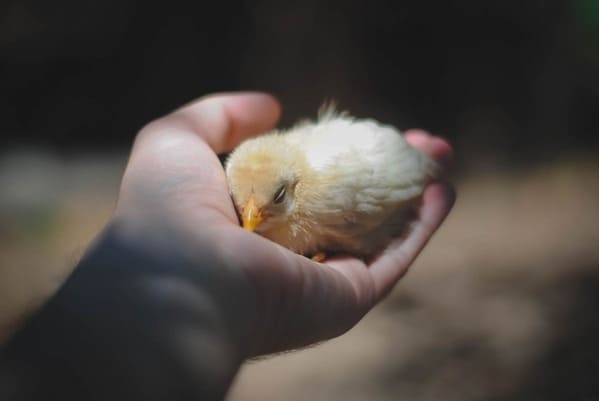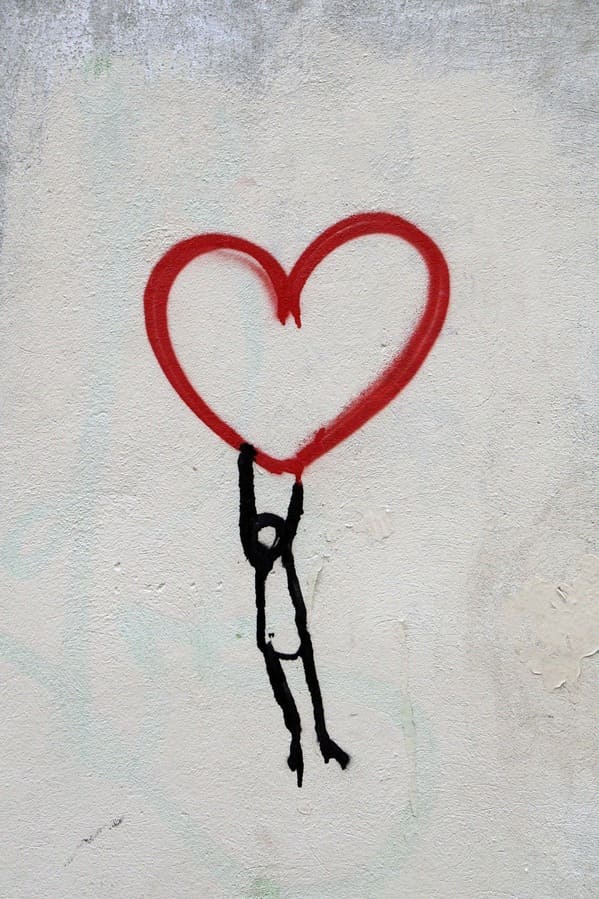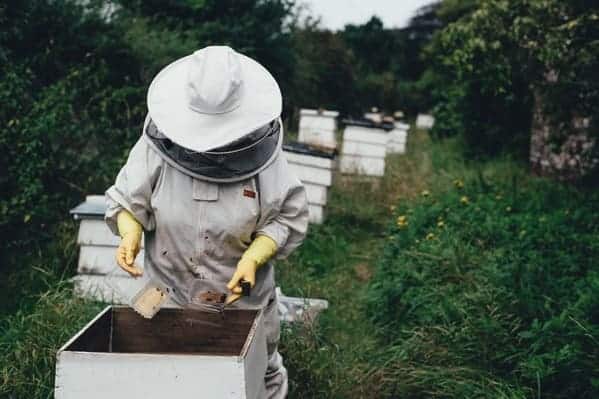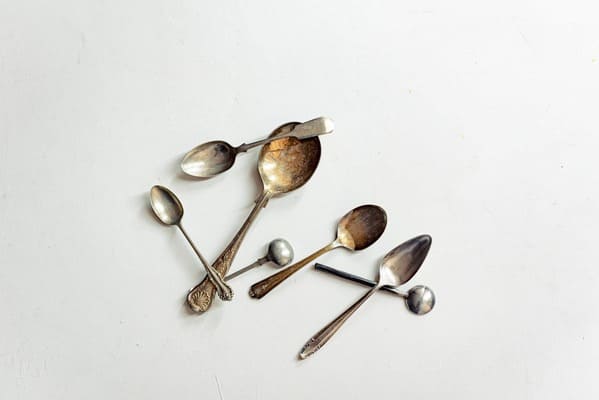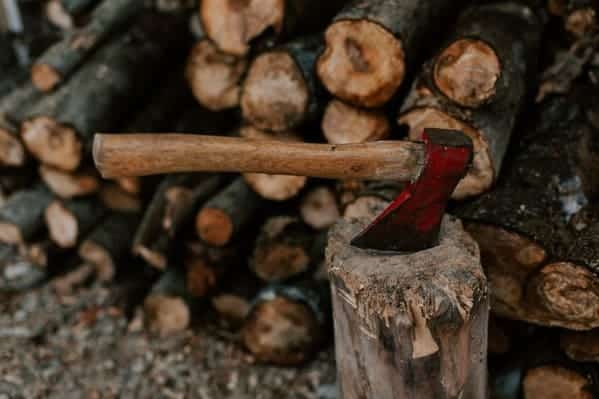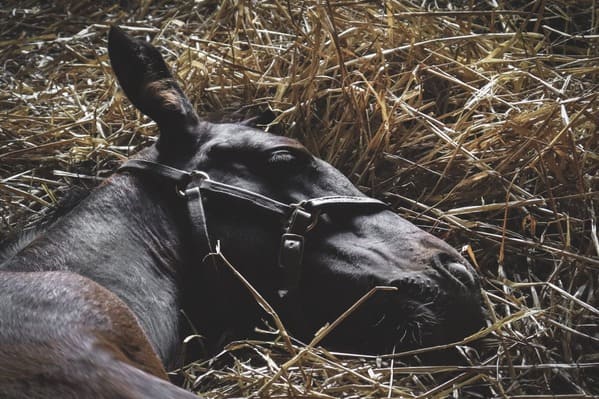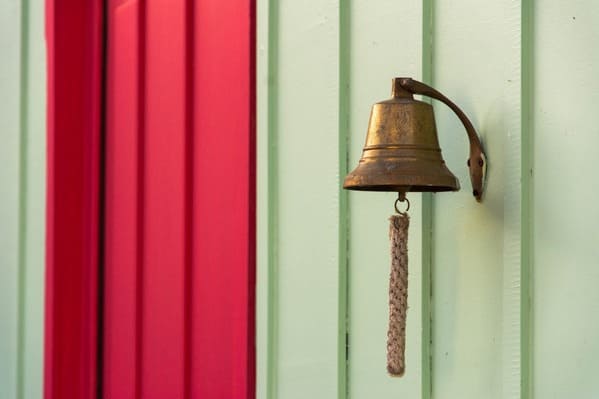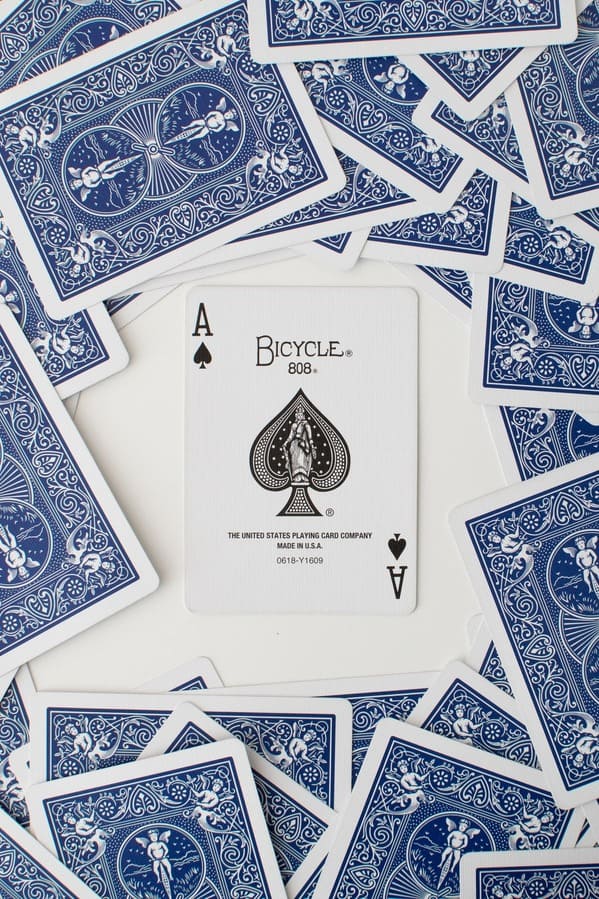Do you ever catch yourself saying an old-timey phrase that your crazy grandpa used to say and wonder where it came from?
Well, wonder no more. Most of those old common phrases come from books or Shakespeare which would make sense why I wouldn’t know where it’s from. That’s right, I’ll say it. I don’t like Shakespeare. I’m sure it’s good if you’re into that kind of thing but I don’t and this is the hill I will die on.
If you’ve been alive and breathing anytime in the last five years, you won’t be surprised to hear that some of these don’t have the nicest origins. Some of the phrases people say without thinking have racist backgrounds or can be attributed to unpleasant military references.
Wonder no more! Never worry that you’re saying a phrase with a horrible history again (no promises). Here are the backgrounds to 40 phrases you might not have known the origin of.
1. The apple of my eye.
This phrase originated from King Aelfred the Great, in Gregory’s Pastoral Care, but also appears in Shakespeare’s A Midsummer Night’s Dream.
2. Hold a candle to.
This originates before electricity, when people had to hold a candle to someone’s face to see them. It first appeared in Sir Edward Dering’s The fower cardinal vertues of a Carmelite fryar in 1641.
3. Chow down.
This is the first on the list in the “surprise, it’s actually racist” category! During WWII, the US military created the term for eating because of the Chinese’s reputation of eating dog meat.
4. Come up trumps.
Thank goodness it’s not who you just thought of. “Come up trumps” is a variant of “turn up trumps” which has been used since the 17th century. Trump is a corruption of triumph, the name of a popular card game at the time.
5. A bird in the hand is worth two in the bush.
This comes from the sport of falconry where having a bird in the hand (the preying falcon) was worth more than two in the bush (the prey).
6. Hair of the dog that bit you.
Sometimes shortened to just “hair of the dog,” this medieval slang came from the belief that is someone was bitten by a rabid dog, the hair of the same dog rubbed on the would would heal it. The first use of it being applied to drinking was in John Heywood’s 1546 tome A dialogue conteinyng the nomber in effect of all the prouerbes in the Englishe tongue.
7. A sight for sore eyes.
Jonathan Swift, author of Gulliver’s Travels, first used this phrase in A complete collection of genteel and ingenious conversation, 1738, with the line “The Sight of you is good for sore eyes.”
8. A stones throw.
Meaning ‘a short distance,’ this phrase was first seen in early editions of the Bible. Writer John Arbuthnot revived it in The History of John Bull, in 1712.
9. Absence makes the heart grow fonder.
This sweet saying came from the Roman poet Sextus Propertius’ Elegies:”Always toward absent lovers love’s tide stronger flows.” In 1832, the modern variant of the phrase was coined by a ‘Miss Strickland’ in The Pocket Magazine of Classic and Polite Literature.
10. The Acid Test.
Acid was used to distinguish gold from base metals during the California Gold Rush in the 19th century. If the metal dissolved in a mixture of hydrochloric acid and nitric acid, it was real.
11. Cool as a cucumber.
Despite sounding like a modern-day phrase, Cool as a cucumber actually first appeared in John Gay’s Poems, New Song on New Similies, in 1732: “I … cool as a cucumber could see The rest of womankind.”
12. Busy as a bee.
Chaucer coined the term in the Squire’s Tale, from his Canterbury Tales, around 1386-1400.
13. Bring home the bacon.
This phrase is often attributed to the story of Dunmow Flitch. In 1104, a couple in Great Dunmow, Essex, impressed the Prior of Little Dunmow with their love and devotion so much, that he awarded them a flitch [a side] of bacon.
14. A baker’s dozen.
In medieval times, English bakers would give an extra loaf to avoid being penalized for selling a short weight. Bakers could be fined, pilloried or flogged for selling ‘underweight’ bread.
15. Barking mad.
The most probable meaning for this phrase is a reference to rabid dogs, barking in their madness. A more interesting (but less likely) tale is that ‘barking mad’ originates from the east London suburb of Barking, where there was an asylum for the insane during the medieval period.
16. Basket case.
This term was used by the US military after WWI, referring to soldiers who could no longer walk and had to be carried by others.
17. Bee in your bonnet.
This phrase was first recorded in Alexander Douglas’s Aeneis, in 1513: “Quhat bern be thou in bed with heid full of beis?”. It has been speculated that the bonnet could refer to the protective headgear beekeepers wear.
18. Beat around the bush.
This evolved from the original phrase, “beat about the bush,” a term used in bird hunting to rouse the prey out of the bushes and into nets.
19. Two peas in a pod.
Referring to the fact that two peas in a pod are identical, this phrase dates from the 16th century, and appeared in John Lyly’s Euphues and his England, in 1580: “Wherin I am not unlike unto the unskilfull Painter, who having drawen the Twinnes of Hippocrates, (who wer as lyke as one pease is to an other).”
20. Born with a silver spoon in one’s mouth.
Although this phrase was thought to be British, referring to people born into privilege, the first recorded use was in America in 1801, in a speech made in U.S. Congress: “It was a common proverb that few lawyers were born with silver spoons in their mouths.”
21. A man after my own heart.
This saying comes from the Bible (King James Version): Samuel 13:14: “But now thy kingdom shall not continue: the LORD hath sought him a man after his own heart, and the LORD hath commanded him to be captain over his people, because thou hast not kept that which the LORD commanded thee.”
22. Cut of your jib.
Sir Walter Scott first used this phrase in 1824, referring to the triangular sail on sail boats, called a jib. Each country has their own style and the “cut of your jib” determines where a boat originates from.
23. Frog in the throat.
The earliest use of this name for a sore throat, was actually supposed to be a ‘cure’. In The Stevens Point Journal, November 1894, the Taylor Bros advertised a medicine called ‘Frog in the Throat’ that will “cure hoarseness” for only 10 cents a box.
24. Fools rush in.
This is a shortened line from English poet Alexander Pope’s An Essay on Criticism, 1709: “For Fools rush in where Angels fear to tread”. The ‘fools’ in question are literary critics – although fool did not have such negative connotations in the 18th century.
25. Fly off the handle.
Coined by American writer Thomas C Haliburton in 1843 (he also invented “won’t take no for answer” and “ginger up”), this phrase was inspired by the way an axe-head will fly off its handle if loose.
26. Fly by the seat of your pants.
First coined by aviation news papers in 1938 to describe pilot Douglas Corrigan’s perilous flight from USA to England.
27. Beating (or flogging) a dead horse.
Dating from the 17th century, a “dead horse” was a term for work which a person had been paid for in advance (and already spent).
28. Gee Whiz!
First used in the late 19th century, Gee Whiz is actually shorthand (or a “minced oath” in linguistic terms) for Jesus.
29. Wide Berth.
Originally a nautical term, a “berth” is a large space where a ship can be moored.
30. Go down like a lead balloon.
The US version of this phrase “Go over like a lead balloon”, first appeared in a Mom-N-Pop cartoon in several newspapers in 1924. It then fell out of use until after WWII – and was said to inspire a certain heavy metal band to name themselves Led Zeppelin.
31. Goody two shoes.
Good two shoes comes from a Christian retelling of Cinderella, a nursery tale named The History of Little Goody Two-Shoes, published in 1765. The poor orphan of the title only has one shoe – but is given two shoes by a rich man as a reward for her virtue.
32. Green-eyed monster.
Shakespeare coined this term in The Merchant of Venice, when Portia says: “And shuddering fear, and green-eyed jealousy! O love, Be moderate;”. He then used green eyed monster again in his most famous play about jealousy – Othello.
33. Saved by the bell.
It’s not actually from the 90’s sitcom! The phrase “saved by the bell” is slang from the 19th century referring to a boxer who is in danger of losing a fight can be saved by someone ringing a bell that marks the end of a round.
34. Dead ringer.
This word was used in US horse-racing at the end of the 19th century. A ‘ringer’ is a horse substituted for another of similar appearance in order to defraud the bookies.
35. In Spades.
The expression ‘in spades’ , used to described a large amount, is a 20th century US word used in Bridge and card games, referring to Spades as one of the highest ranking suits.
36. I’ll be there with bells on.
The first record of this phrase in print is in F. Scott Fitzgerald’s The Beautiful and the Damned, 1922: “All-ll-ll righty. I’ll be there with bells!”
37. In stitches.
Another Shakespeare coinage, although not used again until the 20th century. In Twelfth Night, 1602, Maria says: “If you desire the spleen, and will laugh yourself into stitches, follow me.” That guy was brilliant.
38. Keeping up with the Joneses.
This American term emerged in 1913, when Arthur (Pop) Momand started a Keep Up With The Joneses comic strip in the New York Globe. The strip was so popular in, that in 1915 a cartoon film of the same name was released.
39. Gadzooks!
This word brings comic strip superheroes to mind, but like Gee Whizz, it’s another minced oath – meaning “God’s words”, and first used in various 17th century plays.
40. Mad as a hatter.
19th century Mercury used to be used in the making of hats. This was known to have affected the nervous systems of hatters, causing them to tremble and appear insane. Mercury poisoning is still known today as ‘Mad Hatter’s disease’.






